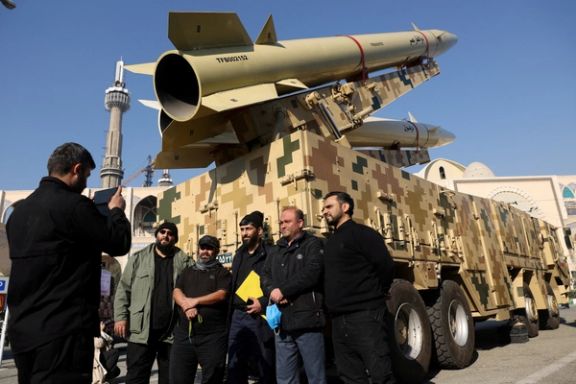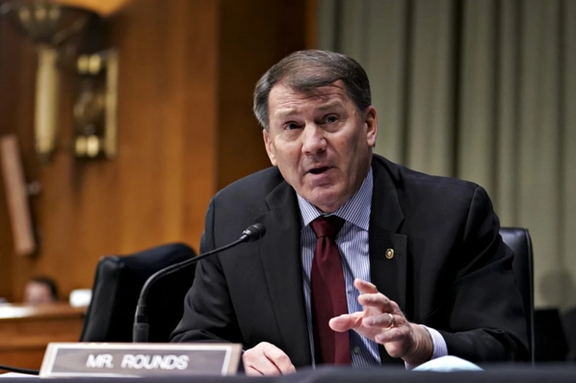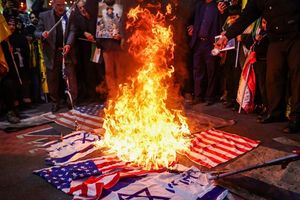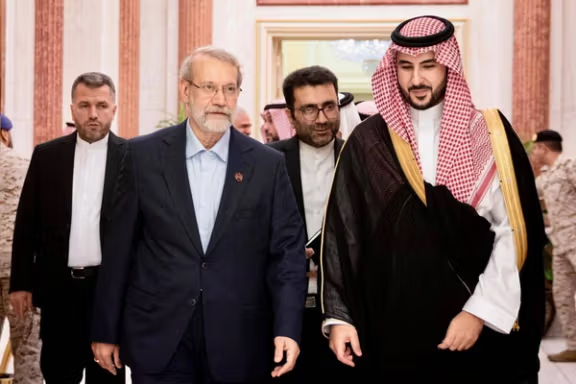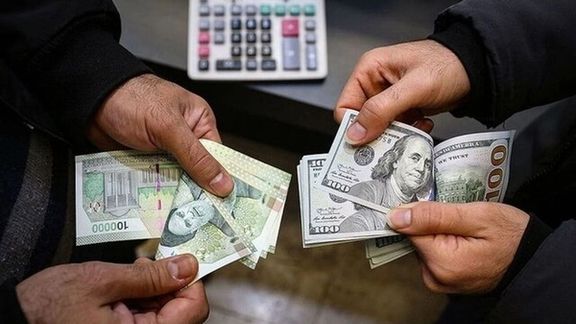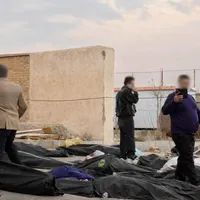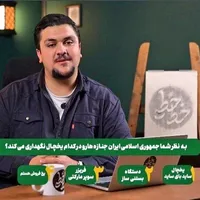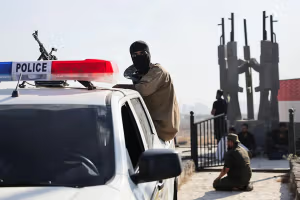"The United States is in no position to make decisions about Iran’s national defence capabilities. The Islamic Republic of Iran is determined to preserve its independence at any cost, stand on its own feet, and firmly resist the excessive demands, aggression, and acts of hostility by foreign powers -- including the United States and the Zionist regime (Israel)."
His remarks echoed those of Ali Larijani, secretary of Iran’s Supreme National Security Council, who earlier this month said that US demands for missile curbs “set a path that negates any talks.”
A sixth round of indirect US-Iran talks was suspended in June after Israel and the United States struck Iranian nuclear facilities, prompting waves of Iranian missile retaliation against Israel.
Iran insists its nuclear program is for civilian use and denies developing missiles capable of carrying nuclear warheads. It argues that defense capabilities, including long-range missiles, cannot be part of any nuclear negotiations.
The United States has repeatedly said Iran’s ballistic missile program poses a threat to regional and global security and has sought to tie limits on missiles to any future nuclear diplomacy.
A June Congressional Research Service report said Western governments fear Iran’s enrichment activity could be paired with long-range delivery systems, and US lawmakers have mandated sanctions across multiple defense and foreign policy bills targeting missile development.
The State Department has imposed waves of sanctions on Iranian and Chinese entities accused of supplying materials for missile propellants and other components.
Under the Iran Freedom and Counter-Proliferation Act, the US has identified 10 strategic materials -- including alloys, magnesium and specialized aluminum -- as controlled inputs for nuclear and missile programs.
The US has paired these restrictions with measures against Iran’s missile and drone proliferation. In December 2024, it sanctioned an IRGC Aerospace Force commander and two Iran-based companies supporting the production of Shahed-136 drones and ballistic missiles, accusing Tehran of enabling Russia’s war in Ukraine and destabilizing the Middle East.
US Secretary of State Marco Rubio, speaking in Jerusalem earlier this week alongside Israeli Prime Minister Benjamin Netanyahu, said Iran’s missile ambitions already threaten Persian Gulf states and Europe.
“A nuclear Iran governed by a radical Shia cleric that possesses not just nuclear weapons potentially, but the missiles that could deliver those weapons far away is an unacceptable risk,” Rubio said, vowing continued “maximum economic pressure” until Tehran changes course.
In recent weeks, senior Iranian officials have issued increasingly direct warnings. A member of parliament’s National Security Committee, Amir Hayat-Moghaddam, said Iranian missiles can already reach all European countries and could target US cities if launched from naval vessels positioned offshore.
“We can move our ships to within 2,000 km of the US and from there target Washington, New York, and other cities,” he said.
Iran’s defense ministry has also announced that new generations of missiles with “far greater capabilities” than those used during June’s 12-day war with Israel are now ready for deployment.
“If the Zionist enemy embarks on the adventure again, we will undoubtedly use them,” Defense Minister Aziz Nassirzadeh said last month.
Also on Wednesday, Major General Abdolrahim Mousavi, chief of staff of Iran’s armed forces, said that Tehran’s defensive preparations had deterred enemies from launching a fresh assault.
Snapback sanctions
Baghaei said Iran would fight until the last moment to prevent the restoration of UN sanctions under the so-called snapback mechanism, triggered last month by Britain, France and Germany.
He denounced the move as unjust and illegal, warning that if sanctions were reimposed, Tehran would end its recent understanding with the International Atomic Energy Agency (IAEA) signed in Cairo earlier in the month.
“Iran has never turned its back on diplomacy. But if hostile action is taken against us, any understanding with the IAEA will be considered terminated,” he said. “It is Iran’s right that if the other side fails to meet its commitments and seeks blackmail, no one can claim that Iran must remain bound by this understanding."
Baghaei added that Foreign Minister Abbas Araghchi will speak with his British, French and German counterparts on Wednesday.
A French diplomatic source told Reuters that the call aims to discuss the impending reimposition of sanctions and to reaffirm conditions they had set to Tehran that would enable that decision to be delayed.
Restrictions on Iranian delegation
The spokesman criticized what he called “unprecedented” US restrictions on visas for Iranian officials attending the United Nations General Assembly in New York, saying such measures violated America’s obligations as host country of UN headquarters.
“Some visas have been issued, but the process has been slow and irregular. Such behavior questions the credibility of the United States,” Baghaei said.
Relations with Syria
On Syria, Baghaei said Iran was not rushing to restore full diplomatic relations but maintained its friendship with the Syrian people. He condemned Israeli air strikes inside Syria and stressed Tehran’s support for the country’s territorial integrity.
“The severance of relations between two Muslim countries is not eternal. Whenever it is determined that renewed ties with Iran are in the interest of the Syrian people, reciprocal readiness will exist,” he said.
Baghaei accused Israel of threatening regional and global security through military actions in multiple countries and said Iran was working with regional neighbors to build “collective security without reliance on outside powers.”
Baghaei added that Tehran values regional efforts to ease dialogue with Washington but stressed that no state has been designated as a formal mediator.
He added that Iran would continue to engage in indirect talks based on its own national interests while rejecting speculation that outside powers were steering the process.
He added that European states should respond positively to Iran’s cooperative stance with the IAEA and resist US and Israeli pressure. “Any escalation would benefit no one,” he warned.
